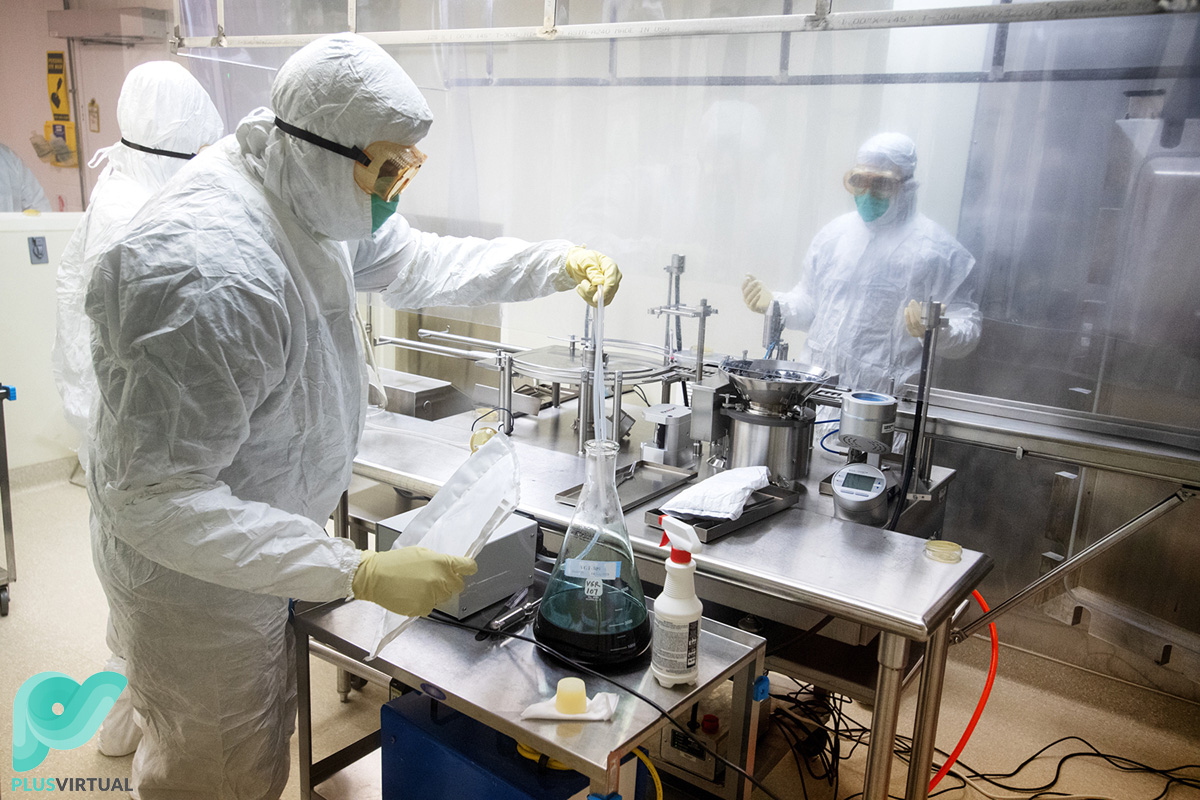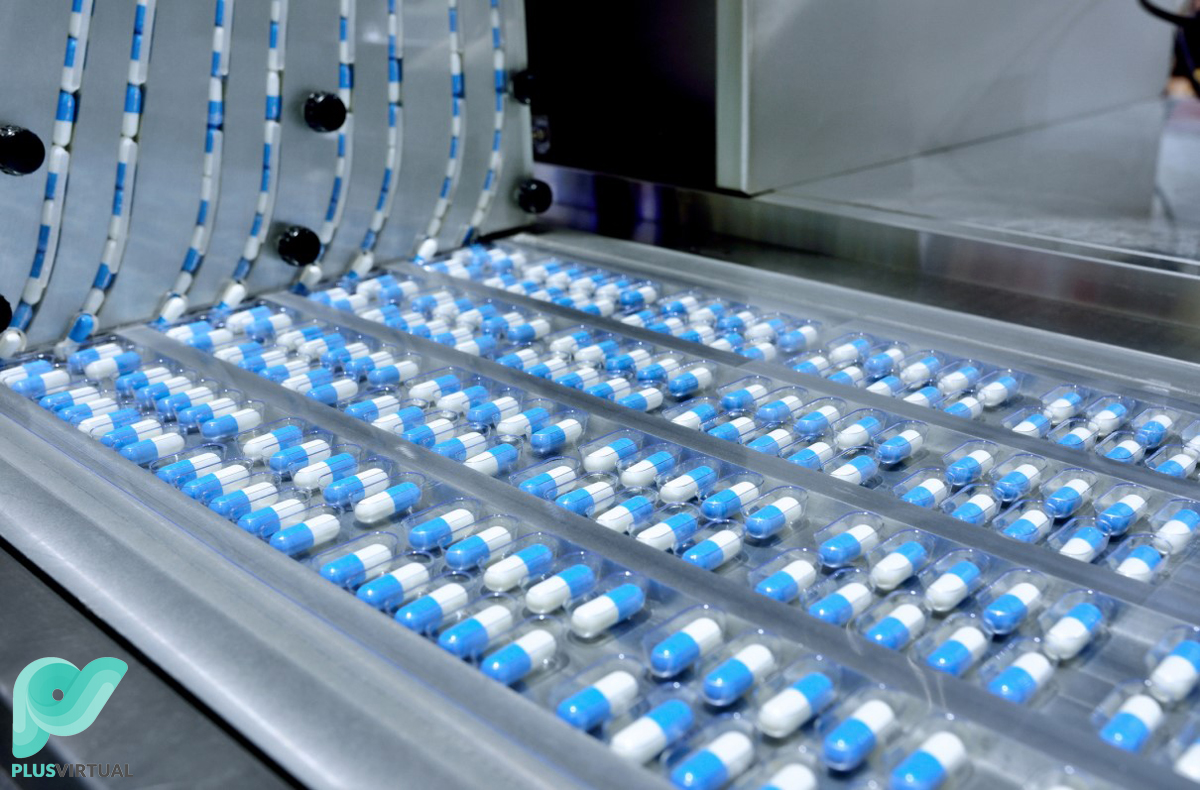Over the past couple of years, The COVID-19 pandemic has exposed the glaring flaws in the global pharmaceutical industry, from inefficient diagnostic processes to poorly conducted medical research. However, since then, new innovations and technologies have risen to the forefront, pushing the industry in a bold, new direction. This article will aim to deconstruct the most relevant healthcare trends of the past few years and the technologies that have been created in light of these trends.

A Paradigm Shift
The global pharmaceutical industry has a history of being slow to adopt new and emerging technologies. This is either due to the concern of health risks or because they can't be monetized just yet. Recent market trends indicate a paradigm shift, however. Today, the pharmaceutical industry is adopting new technology at a faster rate than ever before. But will this trend continue?
Artificial Intelligence
By leveraging the power of artificial intelligence, the global pharmaceutical industry has succeeded in accelerating the process of discovering and producing new life-saving drugs. Optimization and automation have always been key issues within the pharmaceutical industry. Today, new startups are offering innovative solutions to these issues, thanks to artificial intelligence.
In the case of clinical trials, artificial intelligence has helped improve the patient identification process, streamlining the research process and removing inaccuracies from gathered data.
InVivo AI
InVivo AI is a Canada-based Artificial Intelligence company that has developed algorithms specializing in drug discovery. InVivo AI leverages various machine learning techniques, such as; representation, reinforcement, active, and few-shot learning.
Pangea Data
Pangea Data is a startup based in England. Pangea Data uses AI to identify the best patient candidates for each trial. Their proprietary AI looks through health records and doctor's notes to find the right patients to guarantee the best possible trial results.
Big Data and Analytics
The research and development of pharmaceutical drugs rely on gathering and analyzing immense amounts of data. Traditionally, pharmaceutical companies have partnered with third-party companies to share this data across every stage of the research and development process.
We can crunch large data faster than ever, thanks to modern computers and high-speed internet. As a result, big data allows pharmaceutical companies to conduct research more quickly, reduce redundancies, and get new drugs in the hands of those who need them faster than ever. Thanks to big data, pharmaceutical is saving more lives today than previously thought possible.
Big data also allows pharmaceutical researchers to analyze historical data and find solutions to modern problems they might've previously missed. For example, thanks to big data, doctors today can diagnose patients more accurately and stand a better chance of curing fatal diseases not long ago.
Pryml
Pryml is a startup from Belgium that specializes in secure data collaboration. They have developed a platform that enables data analysts to compile data sets using other private organizations' confidential data while keeping their identities anonymous. This way, hospitals, and other private organizations can allow analysts to leverage their data without compromising their clients' privacy. In addition, the platform uses predictive models to make accurate drug recommendations.
Pomicell
Pomicell is a pharmaceutical startup from Israel. They provide software tools for researching and developing pharmaceutical drugs and services. By using machine learning, Pomicell contributes to the development of in-silico models. Pomicell uses big data to create roadmaps for pharmaceutical research and development initiatives.

Flexible Production
Due to growing demand in the global pharmaceutical industry, drug manufacturers are under pressure to find new, innovative ways to increase drug production. Some treatments require precision medicine, and some manufacturers are experimenting with single-use bioreactors to increase output. The diversity of needs within the industry proves that flexible production is necessary.
Secoya Technologies
Secoya Technologies is a startup from Belgium that specializes in continuous manufacturing. A continuous manufacturing process has significantly improved the output of biopharmaceutical products. In addition, continuous manufacturing consumes less energy, bolsters productivity, and decreases waste output. Secoya Technologies produces new hardware for the production of pharmaceutical drugs, focusing on efficiently scaling for any scope of production. Secoya Technologies' products have been used in micro-encapsulation and pervaporation. As well as crystallization and chemical synthesis.
Cellexus
The Scottish Startup Cellexus manufactures airlift bioreactors. Rather than using mechanical mixing, Cellexus's patented technology uses bubbles to mix nutrients and cells. As a result, Cellexus' technology allows pharmaceutical drug manufacturers to accurately control the biochemical factors of production. These include temperature, oxygen, and pH levels.
Precision Medication
The pharmaceutical industry is quickly discovering the importance of looking at each patient and their medical issues from a holistic point of view. This means treating the individual first and the symptoms second. Medical experts can glean new insights on how individuals respond to various medications, thanks to the latest data collection and analysis advancements. By combining this holistic approach with modern pharmaceutical manufacturing methods, health professionals can provide patients with personalized solutions to their medical problems.
ExactCure
ExactCure is a startup from France. They have developed software capable of artificially simulating the effects of various drugs in a particular patient's body with pinpoint accuracy based on multiple data metrics. ExactCure accomplishes this by leveraging scientific literature and population pharmacokinetics. ExactCure is currently building data models to simulate how new drugs will cure patients of COVID-19.
Tepthera
Tepthera is a swiss startup specializing in helping medical professionals identify T cell antigens with their MEDi platform. MEDi identifies tumor-specific antigens, then supplies patients with personalized vaccines to treat their condition.
The Future of The Pharmaceutical Industry
Because of the COVID-19 pandemic, the past few years have put immense pressure on the global pharmaceutical industry. But that pressure has inspired some of the greatest technologies and innovations the industry has ever seen. Predicting where exactly the sector goes from here isn't easy. Will we fall back on our laurels and allow the industry to stagnate? Or will we learn from past mistakes and continue to push forward in bold, meaningful ways that enable us to save countless lives? Only time will tell.

